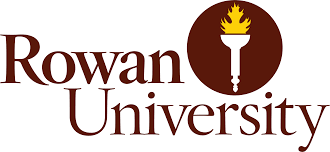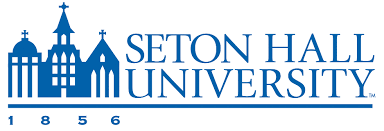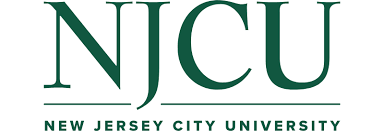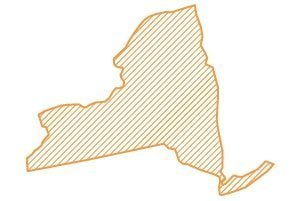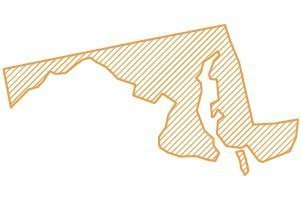Though New Jersey is small in terms of square mileage, it is the 11th most populous state in the country. The Garden State is home to 9.5 million people, making it the fastest-growing state in the Northeast region. With over 2,500 public schools serving more than 1 million students and an additional 200,000 students in private schools, New Jersey is at the forefront of ensuring students receive appropriate and equitable academic and social-emotional support.
In 2024, the New Jersey legislature passed a bill establishing guidelines for school counselor professional development. This requires training in mental health awareness, trauma-informed and crisis counseling, college and career readiness, and multicultural competency. The bill also mandates accredited school counselor preparation programs to incorporate coursework on the implementation of the American School Counseling Association national model or state-approved model. With 9 of the 10 master’s programs holding CACREP accreditation, New Jersey’s commitment to training and retaining skilled practitioners makes it an attractive destination for individuals interested in becoming school counselors. Read below to learn more about how New Jersey’s school counseling master’s programs prepare you for this evolving and dynamic profession.
Masters Programs in New Jersey To Become a School Counselor
Of New Jersey’s 60 colleges and universities, ten have school counseling master’s degree programs. Though that may seem like a small number in comparison to the population of K-12 students enrolled in the state’s public and private schools, the programs are high quality with impressive post-graduation board exam and employment rates. 9 of the 10 programs are accredited through the CACREP, and submission of the GRE to apply is completely optional for all programs.
William Paterson University
- Wayne
- 60 hours
- In-Person
City: Wayne
Modality: In person
Degree: MEd
Length: 60 hours
Tuition: In-state $7,518 per semester; Out-of-state $11,718 per semester
Program Overview:
This CACREP-accredited program boasts 99% degree completion and post-graduation employment rates. By emphasizing advocacy and foundational counseling skills, William Patterson’s MEd graduates are prepared to serve the area’s richly diverse population.
Caldwell University
- Caldwell
- 60 hours
- In-Person
City: Caldwell
Modality: In person
Degree: MA
Length: 60 hours
Tuition: $10,107 per semester
Program Overview:
Caldwell University is a private college based in the Catholic Dominican Tradition. Their CACREP-accredited school counseling master’s program offers two pathways: an open elective track and a licensed professional counselor track. Admission is GRE optional and coursework integrates research and writing with foundational counseling and student advocacy.
Rowan University
- Glassboro
- 60 hours
- In-Person
City: Glassboro
Modality: In person
Degree: MA
Length: 60 hours
Tuition: $7,524 per semester
Program Overview:
Rowan University’s school counseling master’s program trains future practitioners to support all students. Cultural sensitivity and service to all are emphasized throughout the curriculum. The CACREP-accredited program has a 98% degree completion rate and 100% post-graduate employment rate.
Monmouth University
- West Long Branch
- 60 hours
- Hybrid
City: West Long Branch
Modality: Hybrid
Degree: MSEd
Length: 60 hours
Tuition: $8,955 per semester
Program Overview:
This CACREP-accredited, hybrid school counseling master’s program is known for training skilled and compassionate counselors. Through Monmouth’s Future Scholars, a pre-college mentoring program sponsored by the Educational Counseling department, master’s students gain practical experience by working to raise the number of college-bound, first-generation students in Long Branch City Schools.
Online School Counseling Masters Programs in New Jersey
Online master’s programs have increased in popularity over the past several years. The flexibility of a fully online program allows students to complete coursework at their own pace. Though the majority of New Jersey’s school counseling master’s programs are in person, there is one program in the state with fully online coursework.
Seton Hall University
- South Orange
- 48 hours
- Online
City: South Orange
Modality: Online
Degree: MA
Length: 48 hours
Tuition: Online $10,350 per semester; In person $14,130 per semester
Program Overview:
At 48 hours, Seton Hall University’s program offers New Jersey’s fastest option to a master’s degree in school counseling. It also allows prospective students to choose either in-person or online delivery. With its focus on foundational counseling skills and professional competency, Seton Hall is an attractive choice for professionals seeking flexibility in a master’s program.
CACREP Accredited School Counseling Masters Programs in New Jersey
The Council for the Accreditation of Counseling and Related Educational Programs assures that accredited school counseling programs meet or exceed high standards for quality education. Graduates from accredited programs are attractive to employers who seek skilled and knowledgeable practitioners. The following schools are among New Jersey’s nine CACREP-accredited school counseling master’s programs.
Montclair State University
- Montclair
- 60 hours
- In-Person
City: Montclair
Modality: In person
Degree: MA
Length: 60 hours
Tuition: $8,028 per semester
Program Overview:
Montclair State University’s school counseling program emphasizes multicultural competency and exploring systems that influence student outcomes. The program prepares students to serve in diverse and inclusive settings and offers evening and weekend classes friendly to part-time students.
New Jersey City University
- Jersey City
- 60 hours
- In-Person
City: Jersey City
Modality: In person
Degree: MA
Length: 60 hours
Tuition: $7,650 per semester
Program Overview:
This in-person master’s program, located in Jersey City, trains students to implement a comprehensive school counseling program. By emphasizing social justice and professional competencies, New Jersey City University’s school counseling graduates are prepared to be agents of change in their communities.
College of New Jersey
- Ewing Township
- 60 hours
- In-Person
City: Ewing Township
Modality: In person
Degree: MA
Length: 60 hours
Tuition: $10,161 per semester
Program Overview:
With a 100% post-graduation employment rate, the College of New Jersey’s master’s in school counseling program is an attractive option for students who value diversity and work for systemic change in education. A summer program for international school counseling is offered in Portugal each year.
No GRE Required School Counseling Masters Programs in New Jersey
For years, the Graduate Record Examination, or GRE, was a common requirement for admission into a master’s program. Recently, many programs have shifted to a holistic approach and review applicants’ academic records, experience, and personal interviews instead of the GRE. The following are among the 10 school counseling master’s programs that do not require applicants to submit a GRE score.
Kean University
- Union
- 60 hours
- In-Person
City: Union
Modality: In person
Degree: MA
Length: 60 hours
Tuition: In-state $8,568 per semester; Out-of-state $10,143 per semester
Program Overview:
Kean University’s master’s in school counseling program is CACREP-accredited and boasts a 100% graduate rate. With a diverse and accomplished faculty, the program focuses on training competent and culturally sensitive practitioners.
Rutgers University
- New Brunswick
- 60 hours
- Hybrid
City: New Brunswick
Modality: Hybrid
Degree: EdM
Length: 60 hours
Tuition: In-state $3,370 per semester; Out of state $13,239 per semester
Program Overview:
New Jersey’s flagship research institution, Rutgers University, is home to a CACREP-accredited school counseling master’s program. Rutgers prepares future school counselors through the framework of educational equity, emphasizing inclusion and diverse settings. The program has 100% completion and post-graduation employment rates.
New Jersey’s Most Affordable School Counseling Masters Programs
Pursuing a master’s degree in school counseling is a significant financial investment. Fortunately, New Jersey has several affordable options for individuals interested in becoming school counselors. The most affordable program, at Rowan University, is also CACREP accredited and holds a 100% post-graduation employment rate.
Accelerated New Jersey School Counseling Masters Programs
Though there is not a designated accelerated school counseling master’s program in New Jersey, future school counselors may be interested in the opportunities available at Seton Hall University. The 48-hour credit program offers a fully online option, allowing students flexibility to earn their master’s degree.
FAQs
How Much Does a School Counselor Make in New Jersey?
Many factors determine a school counselor’s salary. The school district, experience, and the state’s cost of living can influence pay. In New Jersey, the average base salary is $64,376, which is 12 percent higher than the national average pay for school counselors.
How Long Does It Take to Become a School Counselor in New Jersey?
In New Jersey, 9 of the 10 school counseling master’s programs require 60 hours to complete degree requirements. One school, Seton Hall, is a 48-hour program. Depending on the number of credits taken per semester, most students earn their degree between two and half to three years.
What Is The Best School Counseling Program in New Jersey?
New Jersey’s school counseling master’s programs are known for their commitment to preparing skilled counselors. Nine of the ten programs in the state are CACREP-accredited, and all programs emphasize social justice, diversity, and best practices. However, two schools stand out with their high-quality instruction and outcomes. With an emphasis on professional identity development and experiential learning, Monmouth University’s hybrid program allows students to put their skills to work through their mentor partnership with Long Branch City Schools. Rutgers University in New Brunswick has the state’s highest degree completion and employment rates and is also CACREP-accredited.


